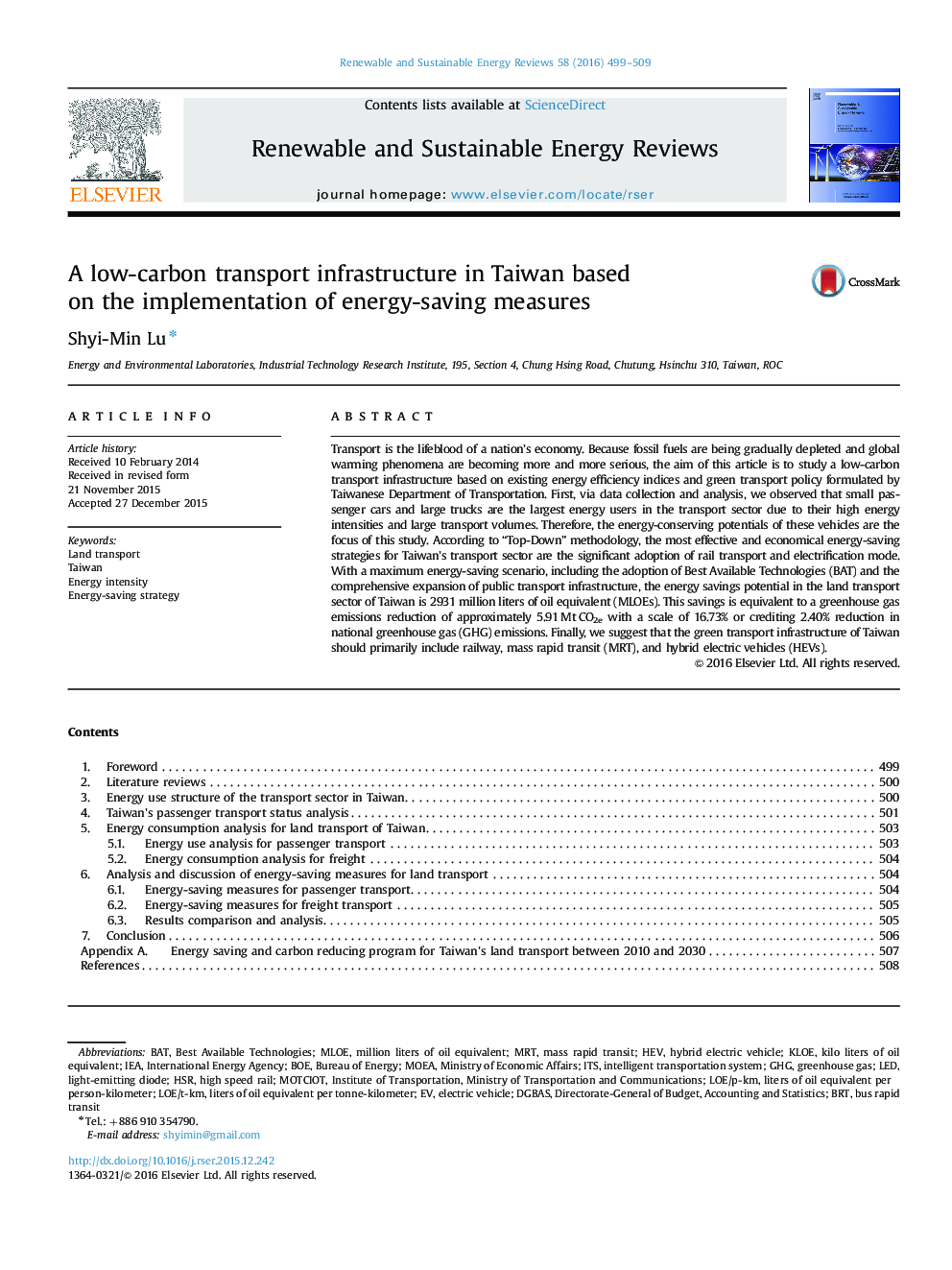| Article ID | Journal | Published Year | Pages | File Type |
|---|---|---|---|---|
| 8114170 | Renewable and Sustainable Energy Reviews | 2016 | 11 Pages |
Abstract
Transport is the lifeblood of a nation's economy. Because fossil fuels are being gradually depleted and global warming phenomena are becoming more and more serious, the aim of this article is to study a low-carbon transport infrastructure based on existing energy efficiency indices and green transport policy formulated by Taiwanese Department of Transportation. First, via data collection and analysis, we observed that small passenger cars and large trucks are the largest energy users in the transport sector due to their high energy intensities and large transport volumes. Therefore, the energy-conserving potentials of these vehicles are the focus of this study. According to “Top-Down” methodology, the most effective and economical energy-saving strategies for Taiwan׳s transport sector are the significant adoption of rail transport and electrification mode. With a maximum energy-saving scenario, including the adoption of Best Available Technologies (BAT) and the comprehensive expansion of public transport infrastructure, the energy savings potential in the land transport sector of Taiwan is 2931 million liters of oil equivalent (MLOEs). This savings is equivalent to a greenhouse gas emissions reduction of approximately 5.91 Mt CO2e with a scale of 16.73% or crediting 2.40% reduction in national greenhouse gas (GHG) emissions. Finally, we suggest that the green transport infrastructure of Taiwan should primarily include railway, mass rapid transit (MRT), and hybrid electric vehicles (HEVs).
Keywords
BRTKLOEland transportBATMOEAMRTHSREnergy-saving strategyIEAHEVGHGITSInternational energy agencyBus Rapid TransitBoEBest available technologiesTaiwanMass Rapid TransitHybrid electric vehicleElectric Vehiclelight-emitting diodeHigh speed railLEDintelligent transportation systemEnergy intensityGreenhouse gas
Related Topics
Physical Sciences and Engineering
Energy
Renewable Energy, Sustainability and the Environment
Authors
Shyi-Min Lu,
